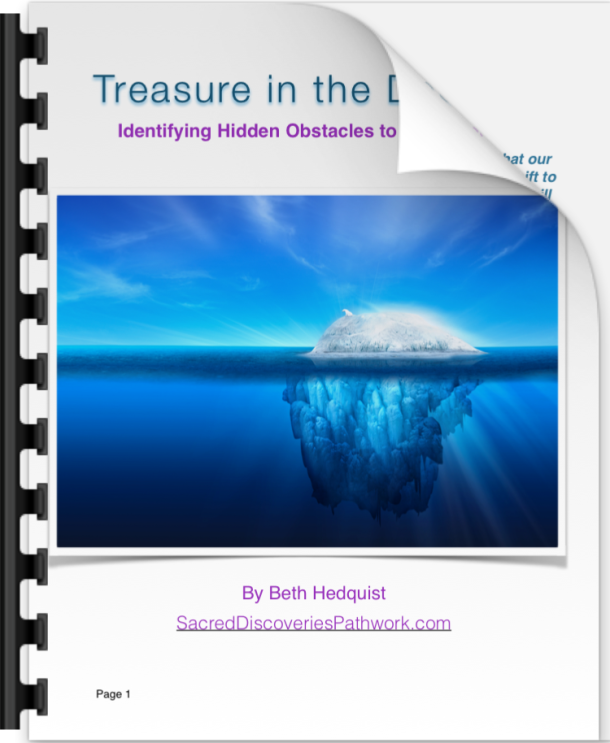At the end of the day, the most accurate yardstick that measures our personal and spiritual development is the degree to which we are willing to engage in relationship with others.
To love another with all their strengths and weaknesses is to find our connectedness to all human beings, which brings us closer to the unitive state.
Of course, since we are imperfect human beings, we will do this imperfectly. And, so will the person we are in relationship with!
When we show up imperfectly, conflict is inevitably going to arise, and the question becomes…
How do we engage in constructive conflict that supports our growth and deepens our relationships?
The answer to that question is complex, nuanced, and can not be answered by a set of steps or a learned set of communication tools. Those are important, and they certainly compliment our efforts to navigate conflict in relationship, but genuine relating is based on self responsibility, positive intention, self-forgiveness when you fail to live up to your intention, a commitment to self-awareness, and lots and lots of practice. That being said, I offer here a series of questions that I have found very helpful in aligning myself in truth and love when approaching a conflict:
♦ Get very clear specifically what this person did that you are not comfortable with, as well as how you feel as a result. Try writing it down in this manner….“when …………….. did/said ………………., I felt …………………..” Name an emotion, not a thought or story line. For instance, “I feel hurt,” as opposed to “I feel like he/she was trying to punish me.” (That is a thought that has become attached to the emotion.) Allow some space to feel the emotion, and allow for the possibility that more than one emotion may arise. Remember to breathe through this process.
♦ Check your motives. Is there any place in you that would like to confront the person as a means of attacking, judging, getting revenge, humiliating, or other hurtful intent? Would your response be coming from love or in reaction to the emotion you have just named? If your motives are not clean, it is better to wait and respond at a later time.
♦ How does this offensive behavior live in you? Even if on a smaller or less significant scale, how do you also carry the trait that you cannot stand in the other? Are you willing to forgive yourself for this trait? If not, pray for help to find acceptance, forgiveness, and the willingness to have this transformed in yourself.
♦ Is there a childhood incident that left you feeling in a similar manner? Ask your inner child if he/she is seeing the incident clearly, from the present moment, or if he/she is perceiving the incident from the filter of the past? What does your inner child need in this moment? Are you willing to give that to him/her?
♦ When you have explored your emotional reactions, your motives, your own imperfections and your childhood wounds that may be resurfacing in the present, and you are clear that you are able to come from a place of love and truth, ask yourself, “Do I still believe something needs to be said? If so, can I express myself in a way that serves both myself and the other?”
When you first begin working with these questions, it may take some time and you may need to explore them with a trusted friend or counselor to release any pent up energy and gain clarity. Sometimes an objective friend can offer feedback in areas you might not be seeing clearly. After practicing these for awhile, you will be able to move through them much more quickly, and eventually you will be able to respond in the moment…..if it is appropriate. When you choose the self-responsibility to work through your own emotional reactions, you will intuitively know what course of action to take, without feeling defensive or reactive. When you see the other as they truly are, you will be able to stay true to yourself, set boundaries without constructing walls, and ask for what you need without demanding obedience. You will also be capable of accepting constructive feedback from others.
Pathwork Lecture 188 states:
“…The moment you fully assume responsibility for your own suffering by looking for your own distortions and destructive tendencies, you liberate yourself from guilt regardless of how wrong others may be. You will know from personal experience that as you can be affected by the destructiveness of others only to the degree that you ignore your own tendencies, so can others be affected by your negativities only to the degree that they deny theirs.”



This is so lovely – well said…true…the sacred gift of conflict.
Thanks, Beth. Straight to the point!
Your welcome! Thanks for reading!
Wise, responsible, and based on truthful love for self and others.
Thanks for sharing your thoughts, Carolina! It’s a teaching I find I need to remind myself of periodically.